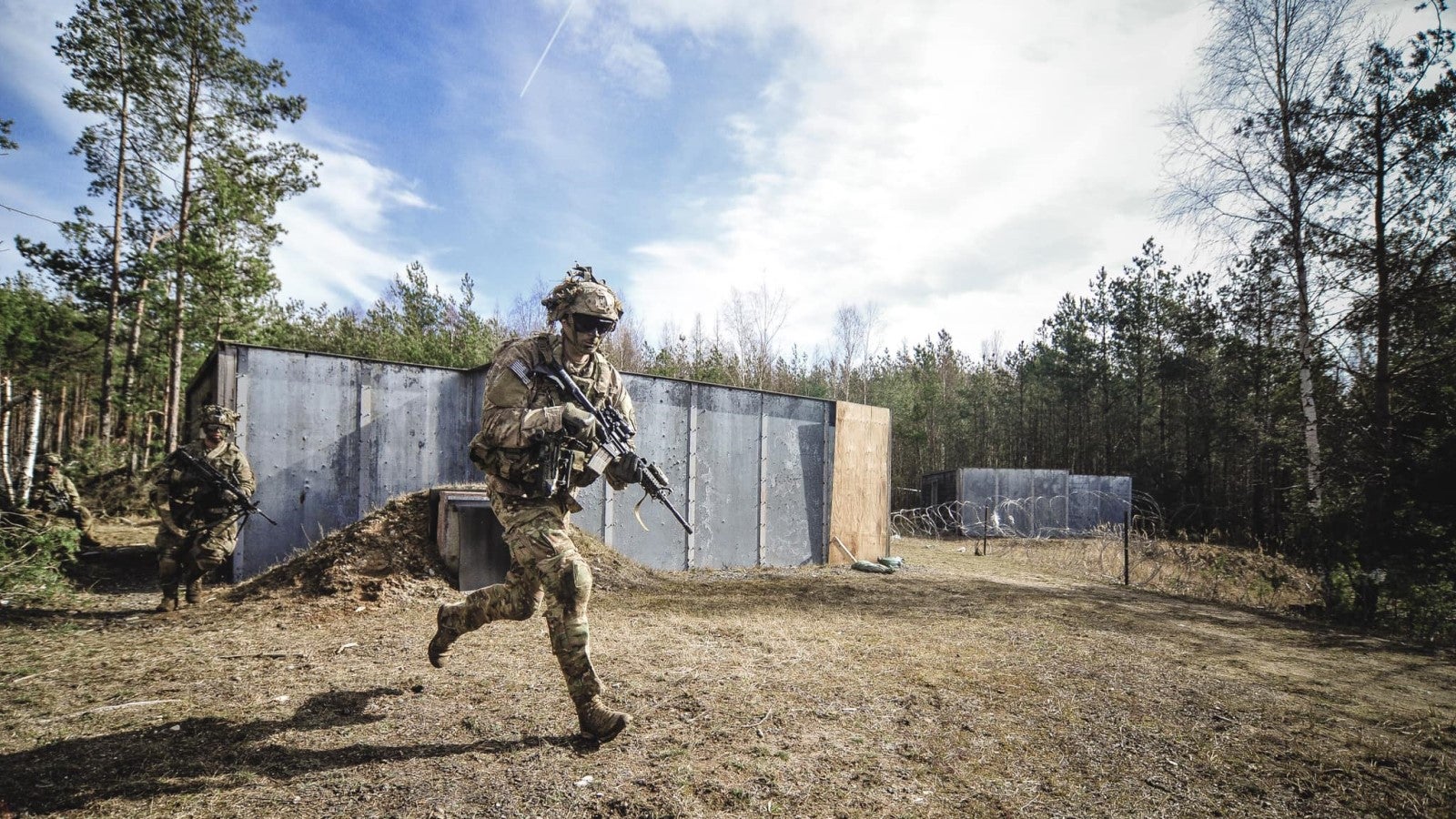Rand: Investments Needed to Hedge Against Proxy Wars
Rand: Investments Needed to Hedge Against Proxy Wars

Amid worrying indications that countries such as Russia and Iran may be driven to more frequent use of proxy warfare, the U.S. Army needs to invest in countering such conflicts, a recent report from the Rand Corp. says.
“With the anticipated continuing relative decline of U.S. power and influence in several regions throughout the world, and the renewed focus in many states on strategic competition, there seem to be growing risks that states will feel increasingly threatened by their rivals and take greater steps to counteract these threats in the years to come,” the report says. “Such an environment can often … lead to an increased interest in supporting proxy wars.”
The prospect of increased proxy warfare has several implications for the U.S. military, the report says. Among them, “violent nonstate actors supported by states tend to be much more lethal than those without state support,” the report says. “These enhanced capabilities appear to make them much more threatening to U.S. allies and partners, potentially forcing the United States to intervene on their behalf to protect them.”
In the report, Rand defines proxy wars as “civil wars in which an external state sponsor provides at least one local warring party with support that could be useful for waging armed conflict.”
“If the U.S. Department of Defense has focused exclusively on high-intensity, conventional warfighting contingencies, it is likely to be poorly prepared for the challenges posed by nonstate actors who are functioning as proxies for other major powers,” Rand says.
As the Army works to counter state-supported nonstate actors, it will need to bolster its irregular warfighting capabilities, the report says.
In terms of its organization, the report recommends the Army “may at least need to develop mechanisms to facilitate rapid adaptation of doctrinal units,” like integrating its air and ground operations into “lower echelons.”
The report specified that this is because state-supported nonstate actors often turn to hybrid warfare, which “involves highly dispersed operations.”
The Army also should adapt its training “for the unique demands that [state-supported nonstate actors] impose,” the report says. This remains true “whether the United States is engaged in combat directly or simply advising partners on how to conduct operations,” the report found.
In addition to maintaining professional military education courses focused on irregular and hybrid warfare, the report recommends that Army leaders develop “the range of skills that leaders will require in hybrid environments.”
“To take full advantage of this potential, the Army (and other services) would need to make such assignments ‘career-enhancing,’ with opportunities for promotion out of such assignments as attractive as the opportunities available to leaders who have focused … on high-intensity conventional warfare,” the report says.
Proxy conflicts are “extremely complex,” and there is no simple solution to countering them, the report says, recommending that the U.S. beef up its capabilities against state-supported nonstate actors.
“None of the military preparations that the United States might undertake for proxy conflicts are silver bullets,” it says. “To hedge against such contingencies, the United States should consider making at least modest investments in the capabilities necessary to fight state-supported [violent nonstate actors] directly, should it be forced to do so.”
Read the report here.

